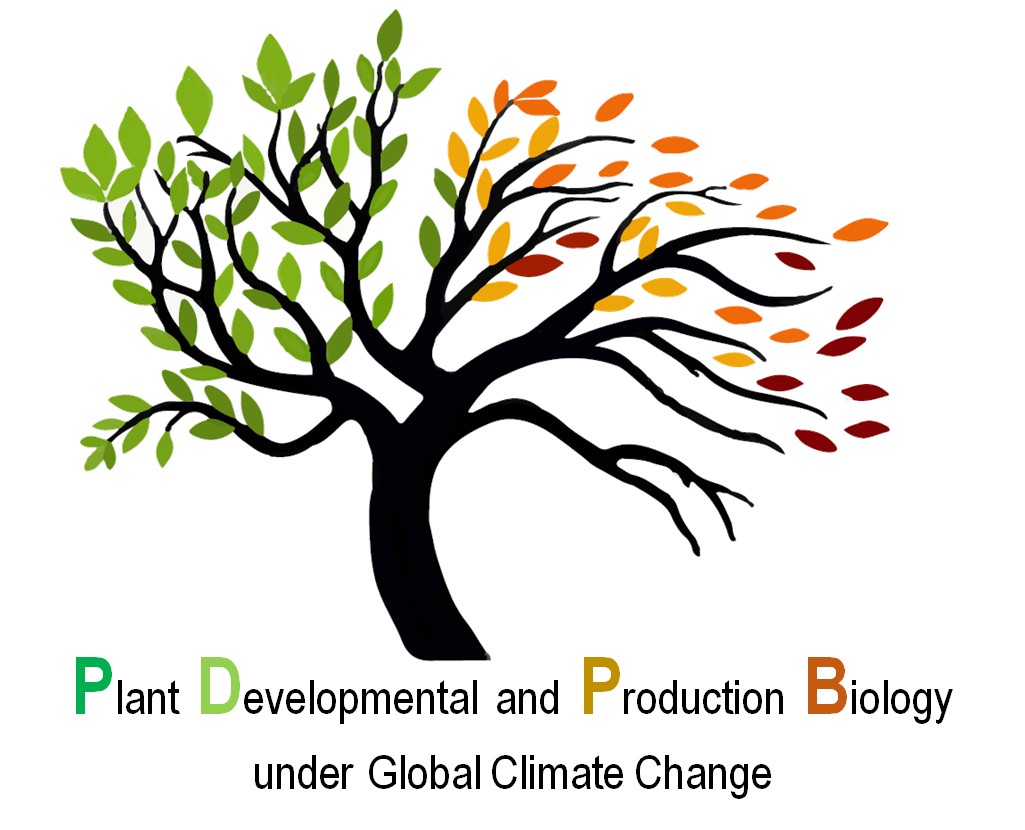| |
|
Different examples will illustrate recent results and ongoing research on the activity of the plant hormone cytokinin (CK).
1. Studies in Arabidopsis have shown that targeted manipulation of CK homeostasis may increase seed yield, enhance biomass formation or improve plant performance under stressful conditions. We have explored whether we can transfer the knowhow gained from Arabidopsis to crop plants for an eventual use in practical breeding. Mutation of CK-degrading CKX genes caused in Arabidopsis the formation of a larger and more active inflorescence meristem and increased yield considerably. We have shown that mutation of the orthologous CKX genes of the close relative oilseed rape causes similar effects demonstrating that gene functions are conserved. Enhanced expression of a CKX gene in roots of barley, maize and oilseed rape caused the formation of a larger root system, which made these plants less sensitive to drought stress. Surprisingly, the Zn content in aerial organs of all three species was increased and exceeded in barley seeds the limit set by the HarvestPlus program. Therefore, root enhancement could be a sustainable way to improve nutritional Zn supply which is often too low. At last, expression of the constitutively active CK receptor variant rock3 under control of a cambium-specific promoter in poplar enhanced stem growth and increased biomass formation. Taken together, proof of concept has been obtained in a number of crop plants that targeted manipulation of the CK system can be used to alter yield-related traits. The biological basis is the control of the exit of cells from meristems by CK.
2. The function of CK in regulating developmental transitions, including phyA-dependent seed germination in response to very low fluence rates, the juvenile-to-adult transition of leaves and flowering time, is poorly understood. In the case of flowering, CK acts in Arabidopsis as a positive regulator, particularly under non-inductive short-day conditions. The CK flowering pathway depends on two CK receptors (AHK2, AHK3) and the transcription factors ARR1, ARR10 and ARR12. Excitingly, CK may act locally or at a distance to regulate flowering time. The hormone is needed for full induction of FT and TSF and genetic analysis has shown that FT as well as SOC1 are required to mediate CK action. CK caused altered miR156/miR172 expression and genetic analysis showed that certain SPL genes, which are miR156 targets, are required for the induction of early flowering by CK under short-day conditions. Thus, this work has established a link between CK and the age pathway.
3. At last, a novel role of CK will be described in the response to photoperiod stress which is caused by prolongation of the photoperiod. Photoperiod stress is particularly strong in CK-deficient plants and is characterized by the induction of stress and cell death marker genes, an increase in jasmonic acid (JA) content and the formation of apoplastic hydrogen peroxide. Mutation of the JA synthesis gene JAR1 strongly alleviated the stress phenotype in a CK-deficient background but introgression of a mutated AOS JA synthesis gene failed to do so. This pointed to a novel JA-independent function of JAR1. JAR1 was also required nightly formation of H2O2 in response to photoperiod stress. Apoplastic H2O2 formation, which otherwise is a hallmark of the response to biotic pathogens, was shown to be at least partly due to an increased activity of apoplastic peroxidases and decreased activity of apoplastic catalases. Photoperiod stress is modulated by light strength, specific wavelengths and wavelength ratio.
|














